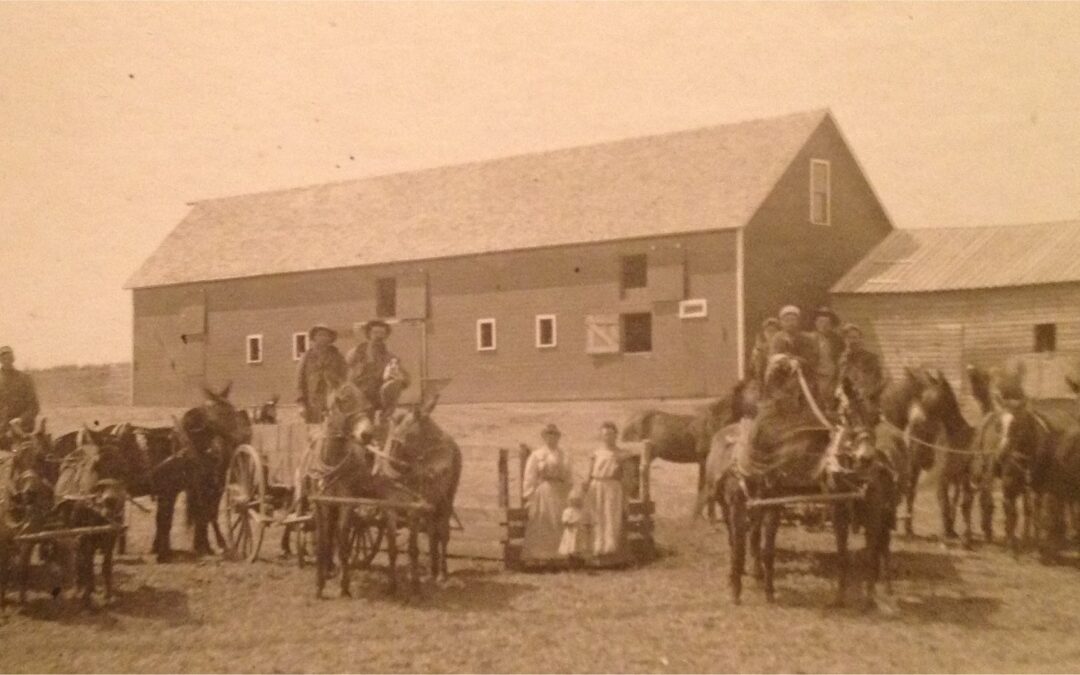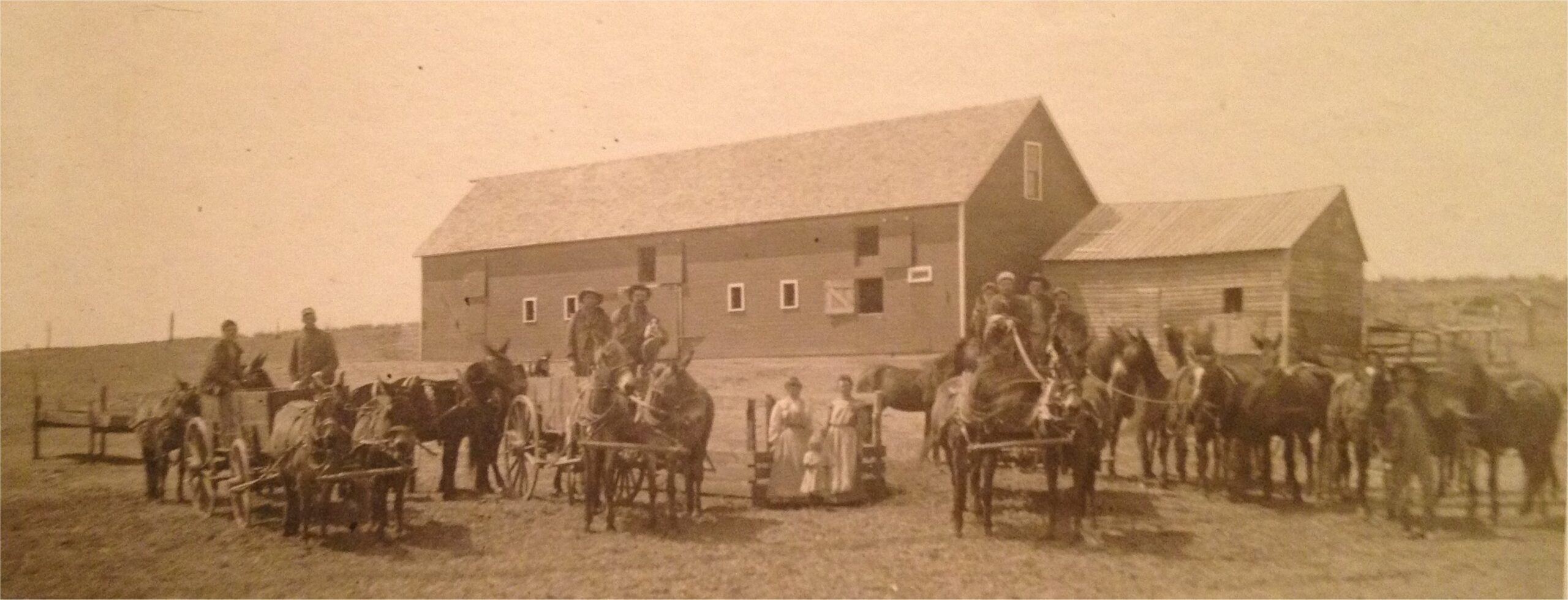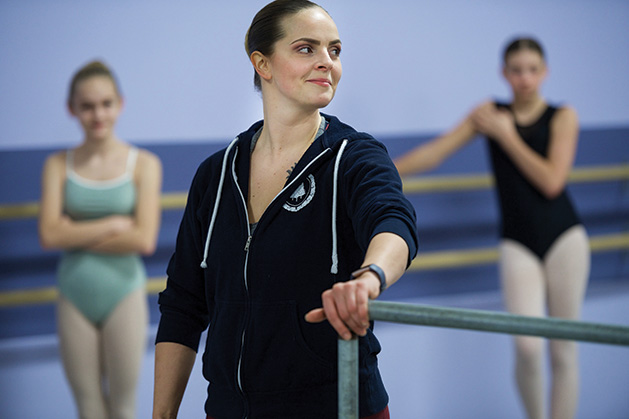
Photos: Jim Douglas
The story of a South Lake Minnetonka police officer.
At age 7, Maddy Graupmann had already charted her future. She informed her family she wanted to enroll in ballet classes. Actually, she remembers her persistence. “I begged to be in dance,” she says.
In time, her parents relented and enrolled her in dance studies in her hometown, Grand Rapids.
Although she flourished and her studies suggested she possessed real talent, she could be awkward elsewhere.
“I tried sports. I was terrible at them, but I always did well in dance.”
Graupmann did so well that in 2010 she was accepted in the Houston Ballet summer program. “I absolutely loved it,” she recalls. That was followed by a two-year scholarship at the same ballet company.
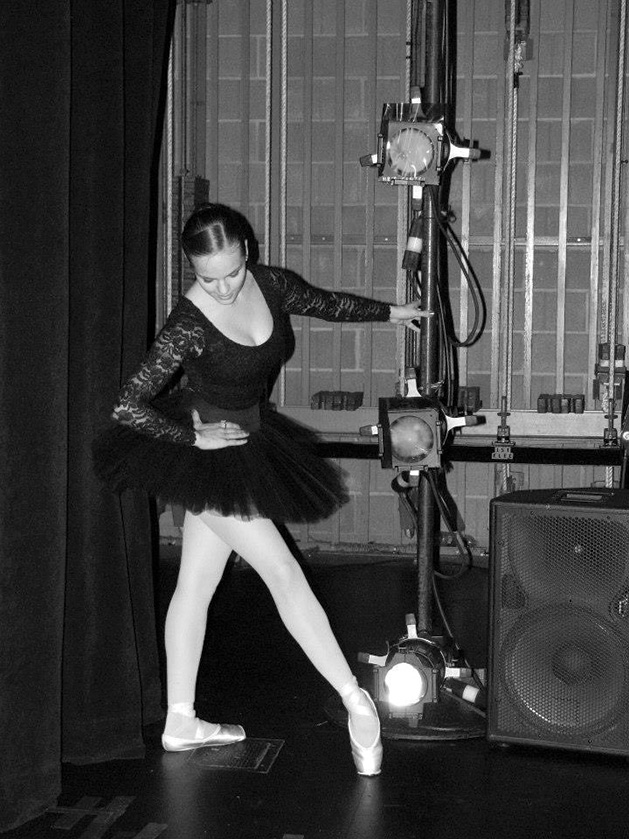
“I was overjoyed when my mom came to dance class (in Park Rapids) to tell me she received the email with my acceptance. I think I honestly cried, I was so happy,” she says.
In Houston, she balanced her online high school studies with a rigorous and demanding dance regimen.
However, training at the academy was not without hardships. At 5 feet, 6 inches, she weighed a mere 105 pounds.
“I was sick often ,” she says. “Not properly nourished. There is a pressure to be very, very thin.”
After completing her studies in Houston, Graupmann applied for a position with Minnesota Ballet. In Minneapolis, rail thin was in. She was rejected. “Because the artistic director said I had to lose 10 pounds and that’s when I was like, 115 pounds.”
Despite her growing misgivings, yet determined to dance professionally, she applied and was accepted by the Lexington, Kentucky Ballet. Although pay was meager, “got paid pennies,” she says, “it’s what I loved and it’s what I wanted to do.”
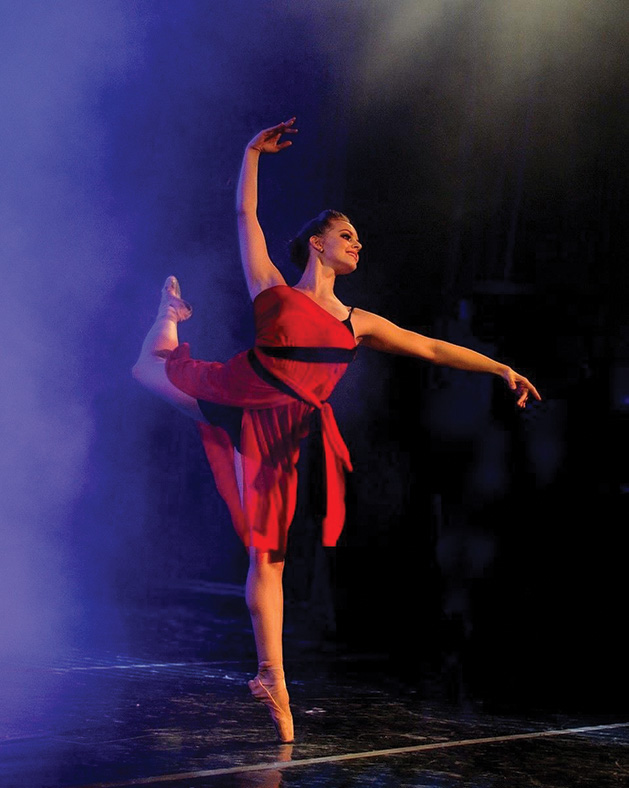
Ballet photos courtesy of Maddy Graupmann
“It was a strange and awesome transition,” she recalled, remembering her beginnings as a grade-schooler. At Lexington,“I danced original works by my director, Luis Dominguez. Also Nutcracker and Cinderella,” she says.
However, Graupmann’s aspirations were dashed half way through the 2013 season when she began to experience pain in both legs.
“I was in so much pain, I couldn’t even get on my point shoes,” she says. “ It felt like my legs were going to explode.” She discovered life in dance could disappear overnight.
But with the benefit of hindsight, the fallout wasn’t all bad. Although her dream to dance professionally was thwarted, Graupmann soon discovered there were options. Out of a grab bag of possibilities, she pulled out the most unlikely: law enforcement.

Maddy and her supervisor Sergeant Justin Ballsrud on the firing range.
“I never had the idea that I wanted to be a cop until I was 19.” That was a year after she danced professionally for the last time. Until then, her only contact with police was a day when she was 8 years old and she along with her 10 and 12-year-old brothers were busted in Grand Rapids. They’d been operating a street corner lemonade stand until someone ratted them out and police swooped in demanding to see a permit.
“We did not–clearly–and they shut us down.”
That experience didn’t dissuade her from becoming a police officer. She wanted a profession that could mean something to her, and she eventually settled on law and enforcement and its certain interaction with the public.
When she broke the news to her parents in Park Rapids, her mom was momentarily apoplectic: “My mom, straight up, looked at me and she said, ‘See, you just want to get shot.’” Both Graupmann and her parents survived law enforcement training, and seven months later on February 21, 2017, South Lake Minnetonka Police Chief Michael Meehan hired her.
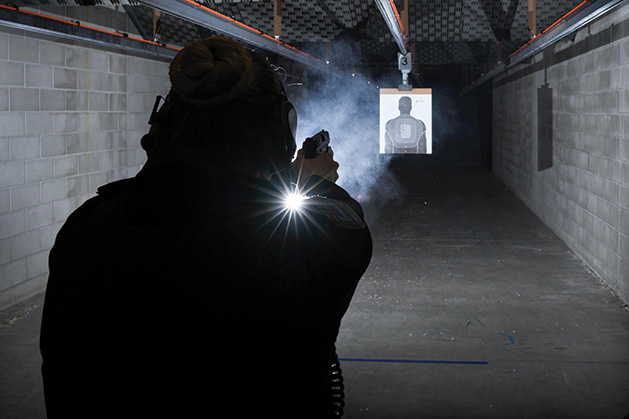
Her leg pain remained a mystery for four years until it was solved by an orthopedic surgeon in Alexandria. Tests indicated she had chronic exertional compartment syndrome. Fascia surrounding muscles were engorged with blood, resulting in extraordinary pain. Surgery followed and so did relief.
“When you hear the story [Graupmann’s injuries and decision to retire from dance], you feel bad for her, but at the same time, I felt fortunate to have a candidate … one thing her background speaks to is achievement,” Chief Meehan says.
Despite her mother’s initial concerns, Graupmann is in a safer place. “I’m much happier now. I love dancing, but, yeah, I’m a much happier person now,” she says.
As a patrol officer, her favorite shift is nightside–8 p.m. until 6 a.m. She ventures into the heart of darkness where she might respond to a myriad of calls: vehicular accidents, medical emergencies, domestics, structure fires and motorists operating under the influence. It’s the latter that provides a kaleidoscope of colorful encounters: many memorable, a few humorous.
A traffic stop by Graupmann can put the fear of God in a motorist.
“You just gotta watch the fear in their eyes when they realize I’m a girl. They’re like, ‘Oh my God, I’m totally getting a ticket.’”
One motorist, after being stopped for driving under the influence, became amorous on the way to jail. After being quiet for most of the ride, “He just says; ‘you know for a first date, that wasn’t that bad.’” Maddy laughes.
“I’ve had people just straight up ask me out or ask for my phone number or ask what I’m doing after I’m off work,” she says.

Maddy working a crash scene with an HCMC paramedic and an Excelsior Fire District firefighter before the victim is transported.
If she has a street rep, its that of a serious-minded officer, as dedicated to law enforcement as she was professional dance.
Reflecting on her experiences, Graupmann is convinced she’s saved lives. “I’m fairly confident if I wouldn’t have removed them (impaired motorists) from the road, they would have either killed themselves or somebody else.”
South Lake Minnetonka Police Chief Meehan says her demeanor can be an asset. “She can be stoic, I think, and sometimes that serves her pretty well. She [also] can be very warm and engaging person,” he says. “I’ve seen her do some stuff to help people … go above and beyond the call of duty.”

With professional dance aside, she now teaches younger generations of dancers.
“I love substitute teaching,” she says. “It gives me the joy of being around ballet … I believe my knowledge greatly helps students.”
As a sixth child, Graupmann calls herself a “miracle baby,” born despite her father undergoing a vasectomy. “Knowing that fact for my entire life, it was like God wanted me here for a reason,“ Graupmann says.
“Once I found this career [policing], I felt more complete. Maybe this is what he wanted me here for. Maybe I can make a real difference in this career.”

